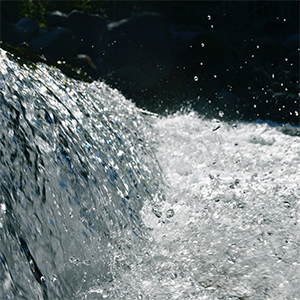Benefits of Acupuncture
- Mood Enhancement
- Headache Relief
- Sleep Quality Improvement
- Immune System Support
- Energy Boost
- Blood Pressure Control
- Allergy Reduction
- Digestive Support
- Fertility Enhancement
Conditions Treated by Acupuncture (PDF)
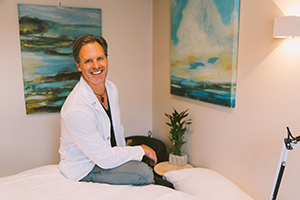
Initial Health Exam/Consult and Treatment
~ 90 minutes
Facial Rejuvenation, Nature Lift and Acupuncture
~ 90 minutes
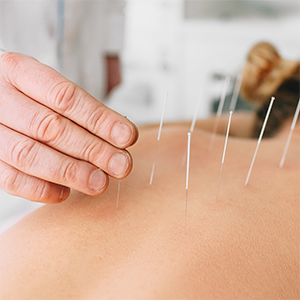
Age-old Chinese wisdom views your physical body as a collection of energetic pathways that form an elegant web connecting to all your organ and tissue systems. See the benefits of Acupuncture below. If the body is in a disease, pain or with accumulated stress and toxins, then and physical blockages in these pathways occur. Acupuncture promotes the body’s healthy energy flow, and if need be, the opening of the blockages that lead to physical and emotional disorders in the first place.
Follow-Up Acupuncture
~ 30 minutes
Follow-Up Acupuncture
~ 60 minutes
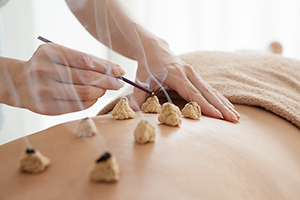
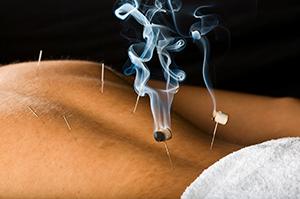
What is Acupuncture?
Acupuncture is the insertion of fine needles into the body at specific points of electromagnetic frequency and power. Acupuncture is known to be effective in the treatment of specific health issues or imbalances in the energy paradigm. These points are mapped on meridians or channels that form a warp and weft grid along the body that conduct qi or energy. These special and sacred points are called “acupoints”. Acupuncture has been used for over 3000 years to treat disease and promote well being, increase immunity and support preventative health care.
All Oriental medicine (East Asian) modalities are intended to improve the flow of Qi (pronounced “chee”). Qi Regulates the body’s spiritual, emotional, mental, and physical balance and is influenced by the opposing forces of yin (negative charge/energy) and yang (positive charge/ energy). According to traditional Chinese Medicine, when yin and yang are balanced, they work together with the natural flow of qi to help the body achieve and maintain health.
According to the NIH (National Institutes of Health) consensus panel of scientists, researchers, and practitioners who convened in November 1997. Clinical studies have shown that acupuncture is an effective treatment for nausea caused my surgical anesthesia and cancer-related treatments, as well as for dental pain experienced after surgery.
The panel also found that acupuncture is useful by itself or combined with conventional therapies ttreat addiction, headaches, menstrual cramps, elbow, fibromyalgia, myofascial pain, osteoarthritis, lower back pain, carpal tunnel syndrome, asthma, and to assist in stroke rehabilitation. tennis elbow, fibromyalgia, myofascial pain, osteoarthritis, lower back pain, carpal tunnel syndrome, asthma, and to assist in stroke rehabilitation.
Is Acupunture Safe?
When performed by a completely trained, licensed health professional, acupuncture is extremely safe. Today, all licensed acupuncturists use individually packaged, sterile, disposable needles to prevent infection, contagion and promote the ease of use and care.
Does Acupuncture hurt?
Acupuncture needles are very fine like a human hair and their insertion by a qualified and licensed practitioner is virtually painless. It is not like having an injection in the hospital or anything remotely similar. The patient is often not even aware a needle has been inserted except for a surge of energy, a light pulling sensation, warmth or other energetic movement. Most individuals find acupuncture to be relaxing, extremely enjoyable and restorative on deep cellular levels.
How many treatments are needed?
This depends on the nature, severity and duration of your complaint. You may need a single treatment or more frequent treatments in a week for an acute condition. Achronic problem will generally need a series of 5-10 sessions. Degenerative health conditions may require many treatments over time. To help reduce the number of treatments, I may prescribe dietary or lifestyle modification, specific exercise or qi gong, relaxation techniques, self-massage and/or Chinese herbal formulation and medicine. The combinationof therapeutic approaches often increases the efficacy of acupuncture and provides a deeper, significant response.
Are there different styles of acupuncture? What if I don’t like needles?
Acupuncture originated in China but spread to Korea, Japan, Vietnam, Europe and America. Different styles of acupuncture developed in different countries based on different opinions, theories and techniques. Japanese styles often involve non-insertive tools (also use for pediatric care) or very shallow insertion for example.
What criteria should one use in choosing an acupuncturist?
- Actual Training of Acupuncturist; how long was program; licensure etc.?
- How long has the acupuncturist been in practice? Other healing education?
- What experience does acupuncturist have in treating your specific ailment?
- Do you trust and have good rapport with the practitioner? This is a deeply personal therapy and comfort and energetics are vital.
Acupuncture is a licensed and regulated health profession in over 40 states in the US. Furthermore, the National Commission for the Certification of Acupuncture & Oriental Medicine (NCCAOM) certifies both acupuncturists and Chinese medicinal herbal practitioners.
I am certified in both and hold a Diplomat in Oriental Medicine, the highest possible certification with the NCCAOM.
What should I know about the proposed treatment?
As a Doctor of Oriental Medicine, I am also a teacher and educator. I am very passionate about discussing theory, treatment and benefits as it relates to your unique situation. I will let you know what I am doing, why and what to expect. I can always alter or customize treatment sessions if you are uncomfortable in any way. There are often alternative methods or therapies available as well. Communication is essential!
What do I need to do BEFORE, DURING and AFTER an acupuncture treatment?
- Wear loose clothing. Avoid one-piece dresses, tight stockings, pants or shirts,etc. However, I have towels and appropriate draping available regardless…so no worries!
- Better to eat something before a session and be well hydrated.
- Please do not be under the influence of alcohol or drugs.
- Just relax and enjoy. Please do not be afraid but always feel open to discuss any concerns or misgivings at any time before, during or after a session.
- Try not to change or adjust your position abruptly during a session. Please inform me if you are uncomfortable in any way whatsoever.
- The acupuncture session will continue to work after the treatment so try to be mindful and conscious of slower more methodical activity. Enjoy the peaceful grounding after-effects.
- Dramatic and powerful results are often reported after the first treatment. Sometimes, immediate total or partial pain relief is reported. Perhaps other unrelated symptoms are alleviated. This relief may be permanent or return in various measures. Sometimes, there is no immediate relief and pain may diminish gradually over time. Regardless, you should expect to feel better and more connected to your body and its needs.
What does Acupuncture treat?
The World Health Organization officially recognizes acupuncture as suitable for many common clinical disorders.
- Ear, Nose and Throat Disorders
- Respiratory Disorders
- Gastrointestinal Disorders
- Circulatory Disorders
- Urogenital Disorders
- Gynecological Disorders
- Musculoskeletal Disorders
- Pyschoemotional & Neurological Disorders

